
Hispanic/Latinos are almost 33% more likely to receive a diagnosis of kidney failure.
Carlos Siguenza is celebrating three years of life with a healthy kidney transplant by raising awareness about the need for registered organ donors in the Latino community.
Within the Latino community specifically, there is a significant gap between the number of Latino organ donors and the number of Latinos in need of lifesaving organ transplants. Health experts say the need for organ donors in the Latino community is crucial.
“People of color actually make up about 60% of the patients on the national transplant waiting list, but they actually only make up about 32% of donors,” said DaVita Group Medical Director Dr. Dana Mitchell. “Latinos are 1.3 times more likely to end up with kidney failure in comparison to Caucasian patients. Meaning, if more Latinos are developing kidney failure and there are less donations, that means that more of them are on the transplant waiting list without very many people donating kidneys.”
In 2020, the number of organ transplants performed on Latinos was about 30% of the number of Latinos currently waiting for a transplant, according to the U.S. Department of Health and Human Services Office of Minority Health. Compared to those currently waiting for a transplant, whites were the recipients of 48.8% of transplants. Similar to the under-representation of Latinos in medicinal and clinical trials, they are underrepresented in organ donations as well.

Carlos Siguenza.
Despite just being 28 years old, Siguenza was diagnosed with kidney failure in 2016. “I was born with kidney problems, but didn't really understand the perspective of eventually being on dialysis if not taking care of myself,” he said.
The South Central native initially ignored symptoms that started a year prior to his diagnosis because he thought it was a regular flu. That same year he met his wife and decided to change his lifestyle by eating healthier and exercising more often. “I had changed my lifestyle before even knowing about kidney failure two years before I got diagnosed. So, I was working out, eating good, but kidney failure just doesn't happen overnight, it's with progression,” he said.
After finally listening to his symptoms, Siguenza decided to go to the hospital. As he waited in the emergency room, without insurance, a nephrologist informed him about his kidney failure disease and the need to start dialysis immediately to avoid death, which he resisted due to fear and lifestyle concerns. “It was the fear of finding out that something was wrong that kept me from going,” Siguenza said. Some of his kidney failure symptoms were fatigue, nausea, vomiting and weakness.
After hearing the news from his doctor, Siguenza was in disbelief because he thought he was too young to be diagnosed with kidney failure. “There's no way [that it was] me. I'm 28. I'm in the best shape of my life, and I need to be on dialysis,” he said.
Dr. Mitchell said that the Latino community is more likely to develop kidney failure because many patients of color have higher incidence rates of diabetes and high blood pressure, and those are the two leading causes of kidney disease.
Even though Siguenza wasn’t having any further symptoms. he still couldn't believe that he was diagnosed with kidney failure. The doctor then decided to leave him in the hospital for two weeks as he became very anemic. During that time,s his doctor and family tried to convince Siguenza to start on dialysis but he eventually rejected the treatment as he was feeling better with the medication he was given at the hospital.
A number of heartfelt conversations with friends and family led him to accept he was in need of treatment for his disease, but the only thing holding him back was changing his lifestyle overnight. “Like, that's gonna hinder me from living my life. It's too much. Like dialysis in general is too much,” he said. But after having a conversation with his compadre, something in him sparked an interest to start looking into treatment. “I eventually decided to admit myself to the hospital for the first time.”
Once Siguenza heard he needed to change his lifestyle for treatment, he rejected dialysis once again. “My life, my lifestyle, was more important at that time. I didn't understand that,” he said. His second admission to the hospital was due to his fears that they would no longer see him for kidney failure and reject his treatment requests. “Of course, that was not gonna happen, but that was what I was thinking at the time,” Siguenza said. “I did everything that I needed to do to get surgery, and I chickened out at the last minute, and I discharged myself from the hospital, so I didn’t get surgery to get my catheter.”
Siguenza went on with life and kept working and going back to his normal routines, but he was feeling weaker, experiencing much more prevalent symptoms. “The symptoms wouldn't go away and they were getting worse and worse, and eventually the third time was a charm. I ended up calling my surgeon. I said, ‘I'm going this time, and I'm going to do it for sure.’ And in August of 2016, I got my catheter placed, and I started home dialysis by September,” he said.

Siguenza started dialysis and found strength from his care team at DaVita, which he got the opportunity to work with by 2019. His experience on dialysis inspired him to want to counsel patients in similar situations. Siguenza became a modality educator where he supports patients as they select their dialysis treatment. “DaVita is part of a beautiful village where we help patients understand what dialysis is. And, you know, I'm part of that. I'm part of that process now, and very grateful and very proud of being able to help my community, the Latino community.We are the most stubborn sometimes when it comes to taking care of ourselves,” he said.
After five years of home dialysis and being on the waitlist for a kidney transplant, Siguenza got the call that a kidney was available for him, which he initially found overwhelming and needed time to process. They gave him about five minutes to respond whether he wanted to receive the transplant.
Siguenza faced a mental barrier, fearing the potential risks and impact on his life, but eventually decided to proceed with the surgery and had to act quickly by booking a hotel and traveling to San Diego within a few days. “In 2021, I got transplanted, which was another beautiful experience, and scary at the same time,” he said. Siguenza admits he was e very lucky, as 4,000 people in the U.S. die each year waiting for a kidney transplant.

Carlos Siguenza post-operation.
Dr. Mitchell said that organ donations are important because it's the best treatment option for patients with kidney failure. “Many patients end up on dialysis because it actually replaces the function of the kidneys. It helps to remove waste and toxins. But in order for a patient to get off dialysis once they've developed kidney failure, kidney transplant is the only option to move away from that,” she said.
As Siguenza experienced this firsthand, he wants to emphasize the importance of prevention, early detection and education within the Latino community. “There’s a need for better awareness and understanding of organ donation and transplant options,” he said.
Experts also say that it’s important for Latinos and other minorities to be organ donors, as they are three times more likely than Caucasians to suffer from renal failure and diabetes. Currently, 8,173 Latinos in California are waiting for kidney transplants, according to the Donate Life California Donor Registry. The lack of organs means longer transplant waiting periods, years on dialysis and sometimes death for these patients.
Dr. Mitchell believes that within the Latino community, specifically, there's a significant gap between the number of Latino organ donors and the number of Latinos in need of an organ transplant due to the many myths related to organ donation.

Dr. Dana Mitchell, group medical director for DaVita.
“There are many people that think that, if they decide to donate their organs, then this means that if something happens to them, they will aggressively be taken care of,” she said. “The other thing is, there's a misconception that if someone donates their organs, that their family has to pay for the organ donation, which is not true.” She also said that some people think that there’s a cut-off age as it relates to donation and the decision to use organs is mostly related to defined medical criteria, not necessarily age-related.
“From a cultural perspective, many patients want to be buried in an open casket funeral, and they think that by donating their organs that they're not able to do that anymore. And it's not true, because donor’s bodies are treated with respect and care and they're dressed for burial,” Dr. Mitchell said. “Those are some of the myths that need to be dispelled in order to increase access to donation and more people be willing to be an organ donor.”
Another reason why Siguenza feels that Latinos are not donating as much is because of the religious aspect. “In my opinion, religion has a big part in being an organ donor. Like you need to be intact, like you need to be in your body's temple and you also need to respect it,” he said.
He believes there's a lack of education and understanding of how organ donation can impact somebody's life. “I don't think that's just on the Latino community. I think that's just an overall topic with everybody just not understanding,” he said.

Carlos Siguenza and his wife.
Siguenza advises that it’s important that Latinos inform themselves about organ donation and transplants. He also thinks self-care and taking preventive measures to avoid serious health issues is crucial. “I encourage everyone to take care of themselves now to ensure a better future and avoid the challenges of serious health conditions, like I did,” he said.
Donating an organ can extend a patient’s life and also save their life. According to the Donate Life California Donor Registry, “Knowing that you have the power to give someone else a chance to live a healthy, productive life is the greatest gift of all.” To register to become an organ donor, click here. You also can register when you obtain a driver's license.

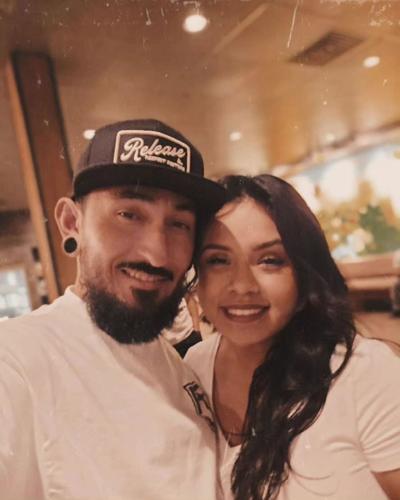

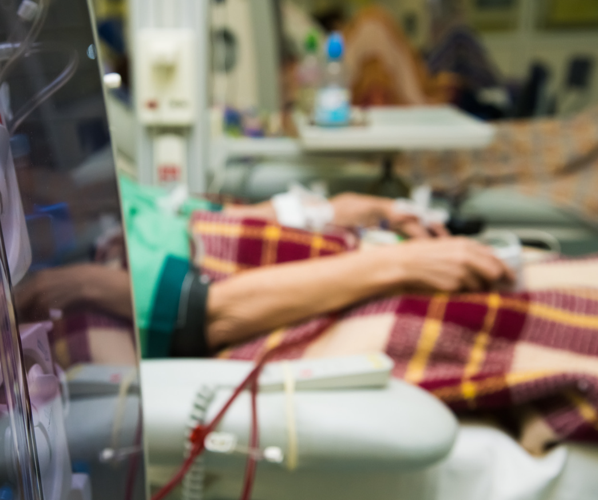
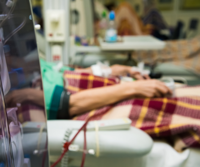

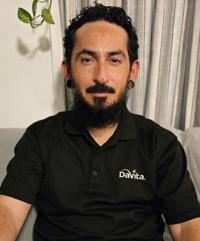
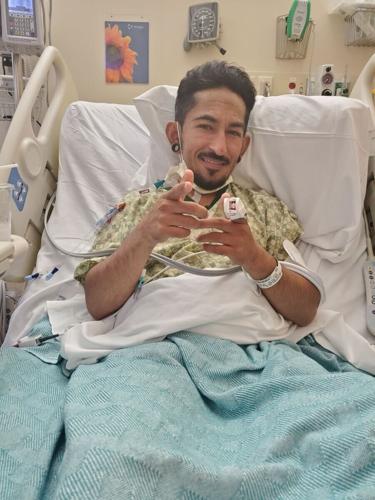
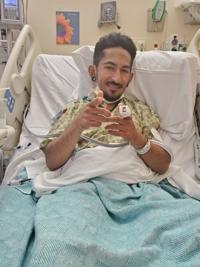


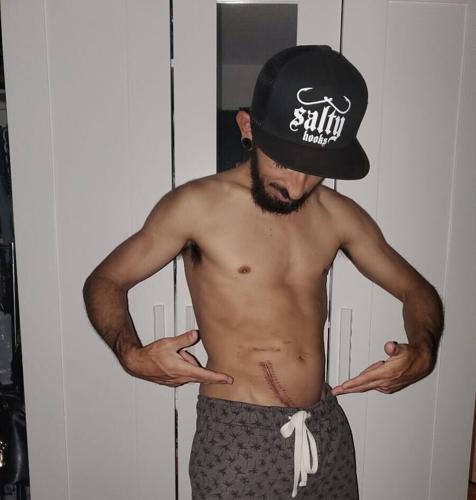








(0) comments
Welcome to the discussion.
Log In
Keep it Clean. Please avoid obscene, vulgar, lewd, racist or sexually-oriented language.
PLEASE TURN OFF YOUR CAPS LOCK.
Don't Threaten. Threats of harming another person will not be tolerated.
Be Truthful. Don't knowingly lie about anyone or anything.
Be Nice. No racism, sexism or any sort of -ism that is degrading to another person.
Be Proactive. Use the 'Report' link on each comment to let us know of abusive posts.
Share with Us. We'd love to hear eyewitness accounts, the history behind an article.